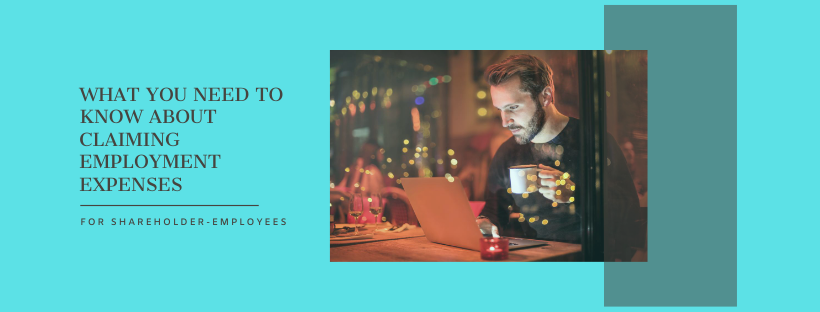Regularly working from home due to the COVID-19 pandemic has become a new norm. As a shareholder, you work extremely hard to ensure the business is on the right track. Also, you are one of the employees, who may incur employment expenses as well. So, what you need to know about claiming employment expenses as a shareholder, then? Please see below.
As per the CRA’s rules, if you are a shareholder, you need to prove that the expenses were incurred in your capacity as an employee and not a shareholder. What it means, you must be able to establish that the expenses can be comparable to the expenses incurred by your fellow employees with similar duties at your company, or at other businesses similar to your company in size, industry and services provided.
Secondly, you, as a shareholder, need to prove that he or she was required to pay for the expenses personally as part of their employment duties. In general, a written contract of employment generally specifies the expenses that a non-shareholder employee must pay. If no written contract is available, then there is still an implied requirement for the employee to pay the expenses. However, for a shareholder-employee, this may be so hard to demonstrate and a written contract may not be accepted by the CRA. In order to meet this condition, you are required to demonstrate that the expenses are comparable to expenses incurred by employees (who are not shareholders or related to a shareholder) with similar duties at your company, or at other businesses similar to your company in size, industry and services provided. This will support that you were required to pay the expenses to fulfill your obligations in your capacity as an employee.
Is it clear now?Likely, you are still confused about what is required of you. Basically, remember two things when claiming home expenses as shareholder/employee, reasonable and supported.
And remember deduction limitation,the expense related to your home office is deductible to the extent that why do not exceed your employment income for the year. What if you(your company) don’t pay yourself, then you still can carry forward the excessive expenses to offset your employment income with the same employer in a future year. Please be sure the requirements are met as well.
When filing your personal tax return, you do not need to include this information on your tax return or the Form T2200, Declaration of Conditions of Employment; however, the Canada Revenue Agency (CRA) could ask it for a review.
As the CRA continues to enforce compliance in personal tax filing, one of the areas that the CRA focuses on is the shareholder/employees’ expense deduction. So keeping the documents available and being reasonable in claiming those expenses are critical when you decide to claim employment expenses as shareholder/employee.
The information in this article is current as of the time it was written and considered as general guidance only. The article cannot be relied upon to cover specific situations and you are advised to consult with tax professionals for further guidance.

Recent Comments